Creation or Evolution
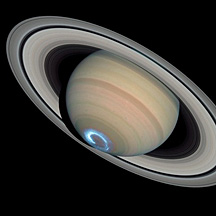
Portrayal of Evolution
What did you think about the programmes broadcast by the BBC a few years back that represented in an amazingly graphical way what life on earth was like millions of years ago?
The series “Walking with Dinosaurs” provided astounding detail about what the earth was like 220 million years ago - a time referred to as the Triassic period - through to a mere 65 million years ago, known as the Late Cretaceous period. It was able to show what the animals looked like, how they fed and interacted with their environment. In fact, the programme was every bit as informative about life so long ago as modern day nature programmes are about life today.
Following the dialogue attached to such programmes leaves little room for doubt that what they are portraying is the truth, or something very close to the truth. However, the programmes went beyond describing conditions millions of years ago and stated emphatically how it all came about and how it has all transformed into the world we live in today - a process commonly referred to as “evolution”.
Serious Issue for Believers of the Bible
The issue for the Christian, however, is how does all this square with the bible? In fact, more specifically, we have to ask if all this information actually undermines the veracity of the bible, because, if it does, then we need to ask just how much of the bible can we rely on. Do we still have any kind of objective basis for our faith in God or can we only rely on personal subjective experience? If it is the latter, then we have no more justification for holding to what we believe than any religion or philosophy that has been dreamt up by men. So the question really is a fundamental one.
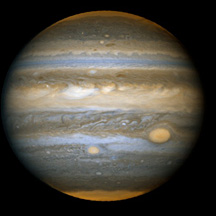
This concept of evolution actually claims to be an explanation of everything we see around us and everything that ever has or will exist. It explains it all without the need for any designer, creator or controlling hand; in fact without the need for anything beyond the material world that we can touch, smell, see, hear, examine or interact with in a physical way. In other words, it does away with the need for God and many would go so far as to state that it effectively disproves the existence of God.
Bible's View on the Issue
What does the bible have to say about such ideas? For a start, the wilful decision to discount God is not new. Paul, when writing to the Roman Christians talks about those men who actually chose “not to retain God in their knowledge” (Rom 1:28). As an aside, the reason for such an attitude was not because of any evidence against the existence of God but because it was inconvenient to admit God’s existence, given their lifestyle.
Paul describes the fallacy of their beliefs and the process by which they came about in the preceding verses. God has given very clear evidences of His existence and His eternal power, says Paul, so that those who reject Him are left without excuse (Rom 1:19-23). In Paul’s day, images of created things were substituted for God. In our day in the western world, we substitute theories of evolution. These verses in the letter to the Romans are probably the most succinct expression of the issue in the bible but there are many other scripture references that support the same verdict about the deception of men’s minds in regard to God.
Role of God in our Universe
The bible and evolutionary theory are not at odds in every detail but the points at which they diverge all come together in the questions;
- Does God exist - or has evolution proved that there is no God?
- If the existence of God is still accepted as a possibility, does He have any active role in creation - or does He leave everything to happen according to evolutionary theory?
Only if we can give an answer in favour of God to both of these questions, is our faith built on a strong conviction.
So how should we respond to such a challenge to the foundations of our faith?
Although evolution is often portrayed as a single clearly stated, proven theory for the existence of all things, in practice it is anything but a single theory, anything but clear and anything but proven. Rather than delve into the minutiae and jargon that the proponents of evolution often use to confound and confuse the rest of us, it is better to concentrate on one or two fundamental questions that anyone can comprehend with relative ease. If evolution falls down on these fundamental issues, then the detail becomes irrelevant.
It is also vital to state from the start that Christianity does not dispute observable demonstrable fact. It is the interpretation or meaning that is attached to the facts that is in dispute. So, for example, there is no question that dinosaurs once roamed the earth since the evidence, in the form of fossilised skeletons, is all around for everyone to see. What is in question is how these creatures came into existence, whether or not they developed from simpler life forms and whether or not they went on to develop into other creatures that we see around us today. Evolution proposes one set of answers to these questions, whereas biblical creation proposes a completely different set of answers, although the observable facts are the same in both cases.
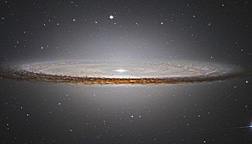
Two Major Issues
In order to explain away the existence of God, evolution needs to address two very different questions;
First is the existence of the material universe we see around us - the earth, our solar system, the sun and planets, our galaxy, the myriads of other galaxies and no end of exotic objects that exist in space, most of which we are barely aware of let alone able to explain.
The second issue only arises after we have addressed the first and it is the existence of life. By life, we refer to animate things, including creatures and plants that we see on the earth. Whether or not life exists elsewhere in the universe is still an open question. Although evolutionists argue quite strongly in favour of life elsewhere, this is no more than conjecture. There is currently not a single shred of evidence in favour of such a proposition, though whether or not life exists elsewhere has no bearing on the existence or non-existence of God.
How the Universe Came to Exist
Looking, therefore, at the first issue, the existence of the universe. The bible states quite clearly that it came into being at the command of God. In fact, the bible is more specific in that it states that the Son of God created all things and the Spirit of God was also involved. What the bible doesn’t attempt to explain is exactly how God did it. There is no instruction book that explains the process, no indication of the tools that are needed or the amount of energy required. Perhaps the bible assumes we are intellectually incapable of understanding and therefore effectively says to us “just believe me!” rather the kind of answer we might give to our children when they are at pre-school age. On the other hand, perhaps the bible simply wants us to exercise a little bit of faith. After all, the process by which creation came about has no bearing on our relationship with God or on the need for our salvation, which are the really important matters affecting mankind.
Evolution, on the other hand (or more precisely the most popular version of evolution), suggests that the whole of the universe came into existence as the result of a “big bang”. The idea is that all the material of the universe already existed but in super compressed form and somehow there was an explosion that blew everything apart into what we see today. Of course this doesn’t really explain very much. It doesn’t explain where the material came from in the first place (i.e. who or what created it), nor does it explain who or what caused the explosion. Evolution assumes these two fundamentals and then asks us to accept that the change in form of the super compressed material is sufficient to explain the creation of the universe. The primary evidence for all of this is the observation made by astronomers that the universe is expanding.
The conclusion has to be that the big bang theory (for it is no more than a theory) doesn’t go very far at all in explaining the creation of the physical world since it merely suggests an event that changed the form of matter from super compressed to expanding universe. This is not creation but merely change of state. However, for the sake of discussion, let us assume that the big bang could have occurred and that no external influence was necessary to initiate it (these are major assumptions that are only being considered for the sake of discussion rather than any suggestion that they have any real merit). If we make these assumptions, then we need to go on and consider the very nature of the material of which the universe is composed.
Amazing Nature of the Universe
Most people will be familiar with construction sets. Years ago it was Meccano, with its steel components held together with nuts and bolts. Today, perhaps the best known is Lego that consists of moulded plastic components that clip together. In both cases, someone envisaged the types of model they wanted to build and then designed the pieces to make such constructions possible. Each of the components was designed, along with the method for holding them together. A resourceful child might dream up construction projects that were never envisaged by the original creators of the sets of components but nevertheless there are still limits to what is possible and those limits could only be exceeded if the manufacturer designs and supplies additional new components.
The universe is a bit like those construction sets but on a super grand scale. Whatever we see around us today, whether in nature or manufactured by man, is only possible because of the nature of the super compressed material that supposedly exploded in the big bang. All the building blocks had to be present in that material that would allow the production of every element and chemical compound we know about. In addition, the means of combining them together had to be present also - the forces that hold the universe together from gravity through to the most elemental forces that bind together atomic and sub-atomic particles.
We can hardly be anything but amazed to think that any of the wonders of the modern world - automobiles, aircraft, space travel, mobile phones, television, computers and far more - were all available to our most primitive ancestors who might have lived in caves and hunted with stone axes and arrow heads. The only difference between then and now is that we have the knowledge of how to manipulate the elements of the universe and they didn’t. Everything was always available, everything was possible, it was all built into the original construction kit. It’s just that our remote ancestors didn’t have the instruction book that is available to us today.
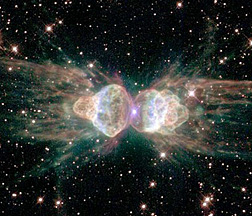
Universal Design
The inevitable question that arises from all of this is, “Who designed that construction kit and ensured it contained all the components and fixings needed so that the universe we see around us could be built?” In fact, if the proponents of evolution are to be believed, the question needs to be expanded to ask who designed the kit so that it not only had all the components and fastenings but it also included the ability to be self constructing.
Interestingly, the writer of the early books of the bible was aware long ago of just how wondrous this construction kit is. The thoughts or words of God are recorded in Genesis 11:6 when He viewed the tower of Babel that had been constructed by men and concluded that “now nothing will be restrained from them (men), which they have imagined to do.” It is interesting that men today rarely talk in terms of “if” we will ever achieve a certain goal but rather talk about “when”. In other words, we assume the possibility is there, all we need to do is learn how to realise it in practice. What a truly stupendous construction set and what an even more stupendous designer who put all the components into the kit.
Incomplete Theory of Evolution
The conclusion must surely be that there are a few very simple but nonetheless profound questions about the existence of the universe for which evolution has no credible explanation. Granted there are some truly esoteric extensions to the theory that have been proposed but they have no basis whatsoever in fact and in any case merely serve to push the problems further back beyond the big bang rather than explaining them.
On the other hand, the existence of an eternal, omniscient (all knowing), omnipotent (all powerful) God, as described in the bible, is more than sufficient explanation for everything we see around us. It would seem, therefore, that the theory of evolution has a lot more explaining to do before it can justifiably question the existence of God.
How Life Came to Exist
We need next to consider a number of similarly fundamental questions about the existence of life and intelligence. The reason is that although it demands a much smaller leap of faith to believe in a God who created the universe rather than believing that it came into being without any external force, it is still possible that, having created the most amazing construction kit imaginable, God then stepped back and allowed His creation to develop in its own haphazard way.
We must now, therefore, consider a completely different problem for which evolution proposes a completely different explanation, namely the origin and existence of life. As for the creation of the universe, we will steer away from the difficult arguments and concentrate on a few fundamental questions. The reason for this approach is that if evolution is unable to provide satisfactory answers to the fundamental questions, then the more complex or difficult questions become irrelevant.
Put simply, in order to explain life, evolution proposes that a “primordial soup” came into being that contained all the “building blocks of life”. In other words, a sea that contained all the chemical compounds that we find in the simplest life forms we see around us today - the simple cell. In addition, an atmosphere also developed that was ideal for sustaining life should it ever get started. All that was needed was the vital spark that would bring the building blocks together to form the first cell. That spark came in the form of a bolt of lightening or something similar.
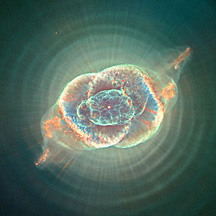
On the surface, this all sounds plausible until we begin to ask some simple questions such as:
Where did that primordial soup come from that just happened to contain all the chemical compounds (many of which are very complex) needed for life? We don’t see anything like it today, either on earth or on any other worlds that man’s technology has visited or observed in our solar system. Furthermore, there is no evidence whatsoever that it ever existed other than in theories dreamed up by men.
Another question we might ask is how a lightening strike could bring those compounds together to create a living organism. The only affects of lighting we can observe today tend to be destructive to any life forms that get in the way. Even assuming the lightening could cause the joining of a few compounds, would that be enough to produce life? Presumably, if the theory were correct, then all the necessary compounds - without exception - would need to come together in the right proportions at precisely the same time.
The fact is, however, that the simple cell is anything but simple. In fact, the very simplest life form of which we are aware is far more complex than any artefact that has ever been made by man. Not only complex, but to be viable, the first living thing needed to be:
- Self sustaining
- Self repairing
- Self reproducing
Should those three characteristics be translated into modern technology - cars, for example - we wouldn’t need petrol stations because cars would produce their own fuel from the materials around them. Furthermore, there would be no need for car repair shops since the vehicles would identify their own faults and repair them. Eventually, cars would wear out and therefore we would need scrap yards but we wouldn’t need manufacturing plants because the clapped out car would leave behind one or more brand new offspring.
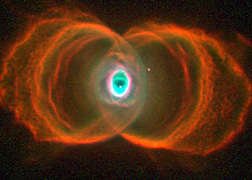
Cars are simply not so clever and therefore need an army of people and industries to keep them going. Unfortunately for the first life forms, there would have been no support services whatsoever and therefore they would have needed to look after themselves – entirely - from the very first moment of existence.
We have to ask ourselves if this is really a credible explanation of how life started. There was no scope for multiple steps. It was all or nothing and what evolution invites us to believe is that something more complex than man has ever devised simply came into being all at once without any external help or support. It requires much less faith and credulity to believe in a creator God.
However, so far we have considered just the start. Evolution then proposes another, completely different mechanism to explain how those simple cells developed into the myriad of life forms we see around us. In fact, it proposes a combination of two mechanisms, namely Beneficial Mutations and Natural Selection.
Considering the first of these, no examples of beneficial mutations have ever been identified. Scientists are only now trying to manipulate genes in plants with the intention of developing stronger, more disease resistant strains. However, there is much debate about whether such “genetically modified” plants are more of a blessing or a curse. It should also be noted that scientists are merely swapping existing genes in and out of particular plant species. They are a long way from being able to manipulate the DNA directly in order to produce something completely new that has never existed before.
Assuming beneficial mutations are possible, then natural selection can take a role. The idea is that any creature that has a better chance of survival has more opportunity to produce offspring and so pass on the beneficial mutation to future generations. This assumes, of course, that the beneficial mutation will be passed on in the genes and the creature doesn’t happen to meet with an unhappy accident that shortens its life. Should the worst happen, then the one in multi-million chance beneficial mutation would be lost and evolution would be stalled until the fortunate mutation occurs again.
If we really want to ask difficult questions, then we might enquire where the mechanism of genes came from in the first place, with their ability to control the development of life forms. Were they developed by that first lightening strike into the primordial soup, because if they weren’t, then evolution has no mechanism to explain how that first life form ever developed into anything else. At this point, as at many others, evolution simply has to assume that highly developed mechanisms already existed but without any explanation of their origins.
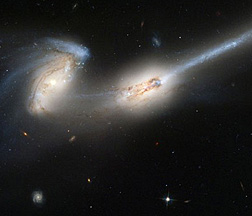
This idea of mutations that are passed on to future generations relies on the idea of billions of microscopic changes occurring over billions of years. Unfortunately, as we observe the results of this process, we don’t find much evidence to support the theory.
For example, there are many examples of living organs that simply could not have developed in this way - i.e. through billions of microscopic steps. There are many organs that are extremely complex such that scientists today can only dream of emulating them. If, however, just one significant element is removed then the whole organ becomes useless. By way of illustration, consider the eye. The eyeball itself is complex in the extreme but is only one small element in the process of vision. Broadband doesn’t compare with the transmitting power of the optic nerve and both the eye and nerve would be useless without the most complicated processing power of specialised areas of the brain. Put simply, when it comes to evolutionary development of life forms over billions of years, the facts don’t support the theory.
In historical terms, there is only one record of the supposed evolutionary process that we are able to study and that is the fossil record. Assuming all things developed in minute steps over billions of years then it should be difficult to identify the species to which any fossil belongs. In fact, the fossil record should represent one continuous process of minute, incremental changes rather than distinct, discrete creatures.
If only there was some evidence of substance that supported the theory of evolution, but there isn’t. The fossil record or the existence of the eye are not absolute proofs that there is a creator God but at least they are consistent with the biblical record. In fact, the bible record has little to be concerned about in regard to observable scientific evidence. Evolution, on the other hand, has to resort to ever more complex theories in order to explain away these most obvious facts.
None of the arguments we have put forward are new. They are questions that have been asked ever since evolution was first proposed as an explanation of life. In fact, if you were to raise these questions with a proponent of evolution, a typical response would be to dismiss them as “the same old questions”. The fact is, however, that they need to be raised over and over again because they have never been satisfactorily answered and they seriously undermine all the theories of evolution.
We need to ask, therefore, why so many people believe in evolution. To this there are two major explanations; either they have merely accepted what they have been told without ever seriously questioning it or they cling to evolution because they prefer not to accept the alternative explanation - namely a creator God. In either case, it is a massive act of blind faith - either faith in what some scientists have to say or, even worse, faith in pure blind chance without substantiation.
The alternative is to put your faith in God. For a start it isn’t blind faith since there is ample evidence around us for an all-powerful creator. Secondly, if you truly exercise faith in God and act on His revealed word, then your personal experience will bear out the wisdom of your faith.
Of course none of this is put forward as the reason for faith in God. That is far more to do with personal sin, conviction, repentance and accepting the only remedy on offer in Jesus Christ. However, what this article seek to do is to demonstrate that Christians need not be shaken in their faith because of the claims of evolution. On the contrary, when you consider the facts, they should serve to strengthen your faith.
